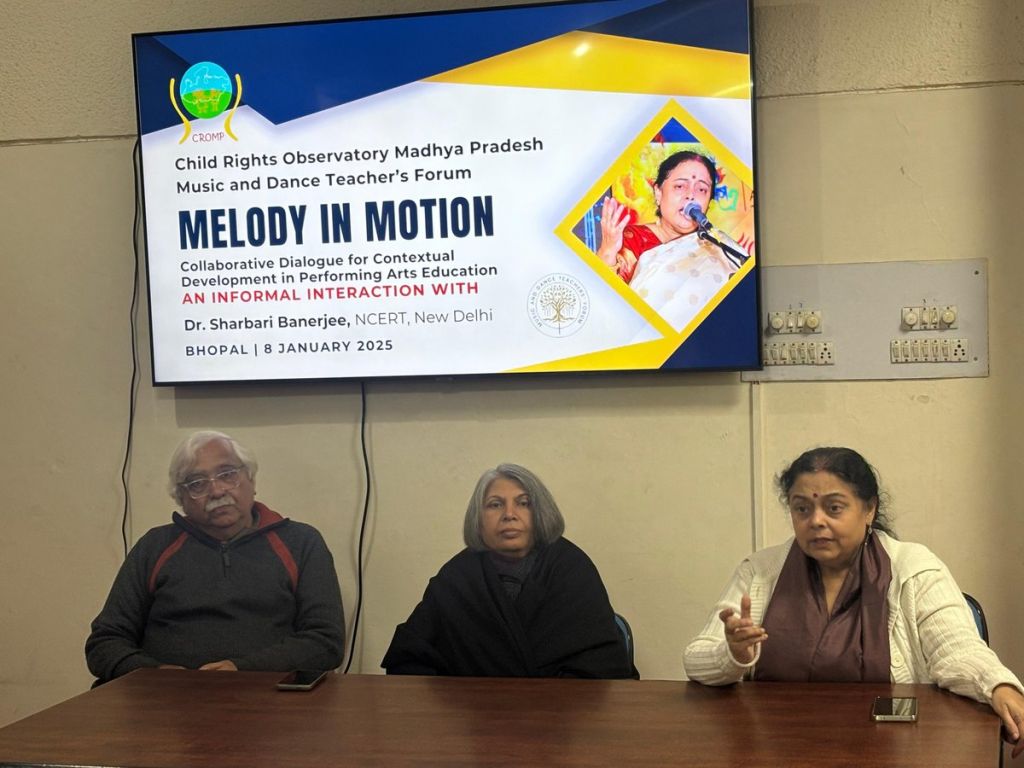
Bhopal (Madhya Pradesh): The Government of India’s New Education Policy (NEP) places significant emphasis on art integration in education. This approach is not limited to art, dance, or music teachers alone but seeks to incorporate art into every aspect of learning to foster a deep appreciation for the arts among children.
Sharabari Banerjee, from the Department of Art and Aesthetics in Education, NCERT, New Delhi, shared this perspective during the “Melody in Motion” programme organised by the Child Rights Observatory and its affiliated Music and Dance Teachers Forum at Mahila Chetna Manch, Shivaji Nagar in the city recently.
Banerjee emphasised that the goal of art integration is to establish a dialogue between art and other academic subjects. “Every student, from nursery to grade 12, should be introduced to art and given opportunities to learn through artistic mediums,” she stated. Clarifying the intent, she added, “The objective is not to make every child an artist but to cultivate refined and sensitive individuals who appreciate art.”
To achieve this, she highlighted the importance of developing teaching-learning materials and utilizing NCERT resources. She also underscored the value of connecting with local art forms and artists instead of relying solely on external resources, which would enrich the process and make it more authentic and impactful.
The event saw the participation of school principals, music and dance teachers, performing artists, and educators from various disciplines. Rashmi Saraswat, Secretary of the Child Rights Observatory, pointed out the challenges faced by smaller private schools in implementing art integration due to limited resources and the lack of government support.
She also noted that parents often prioritize mainstream academics over arts education. To address these issues, she announced a dedicated workshop for teachers on art integration, scheduled for March-April, with plans to implement its recommendations in the upcoming academic session.
The programme was coordinated by Sunil Shukla, who shared that the Observatory, in collaboration with art, music, and dance teachers, is experimenting with various initiatives, including workshops and performances.